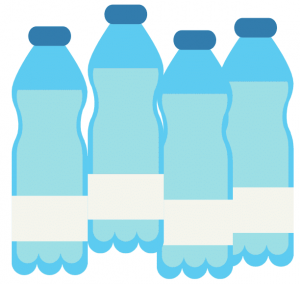

When you wake up each morning to go to school, you know that you need to shower, get dressed, eat some breakfast, and run to the bus stop. If you spend too much time on any of these tasks, you might miss your bus. In other words, each morning you will have to manage your time or face the consequences of missing your bus.
And when you go on a hike, you typically carry a water bottle with you and sip on the water with the hope of trying to make it last for the full distance. In other words, you try to conserve your water to make it last for your full hike.

When you are managing your time or your water, whether you realize it or not you are already “budgeting.”
In a few years when you get a job or go off to college, you will probably be living on your own in an apartment or dorm. To budget your money properly then, you will need a firm grasp of your monthly income (paychecks and/or allowance) and your monthly expenses (rent, car payment, gas, utilities, food, etc.).
What makes budgeting hard is that it is easier to estimate your monthly inflows than your outflows. In life, there are so many unexpected expenses that occur that can wreck you budget like flat tires, speeding tickets, breaking your cell phone, car repairs, clothes that you “must have”, medical bills, etc.
By keeping track of your income and expenses, and always allowing for the unexpected, you are more likely to spend your money more wisely and not run out of money each month.
Now that you know a bit more about budgeting and estimating your expenses, close this lesson to continue the game!
[close]